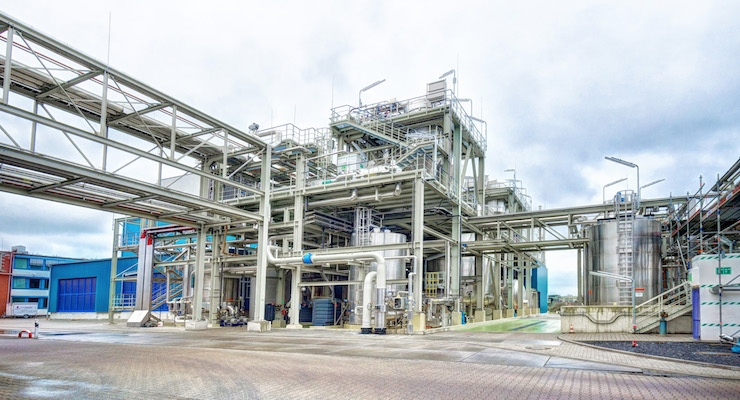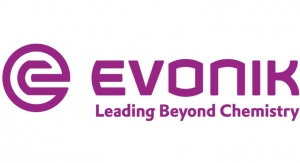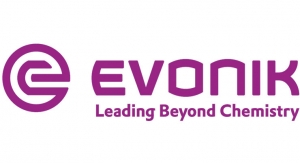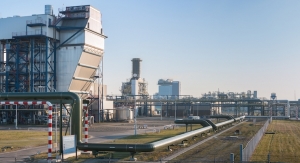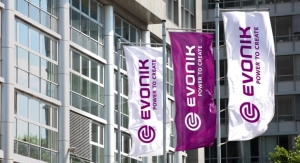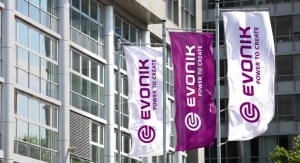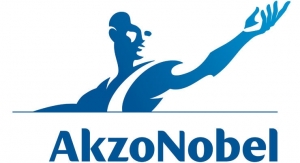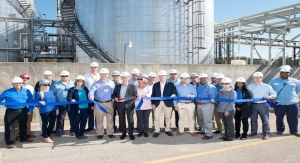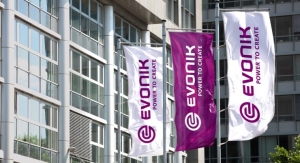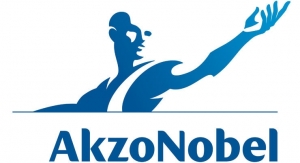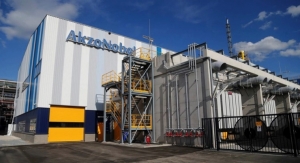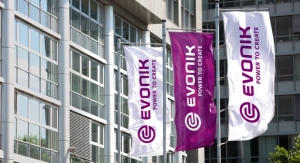02.13.18
AkzoNobel Specialty Chemicals and Evonik Industries have successfully started production at their new joint venture to produce chlorine and potassium hydroxide at the company's Ibbenbüren site in Germany. The facility uses state-of-the-art membrane electrolysis technology to produce up to 120,000 metric tons of potassium hydroxide and 75,000 metric tons of chlorine per year, as well as hydrogen.
The plant will strengthen the respective leading positions of both companies. AkzoNobel Specialty Chemicals will receive chlorine and hydrogen, while Evonik will market the potassium hydroxide from the facility and convert part of the output at its Lülsdorf site into other products, including potassium carbonate, potassium bicarbonate and potassium formate.
"The Ibbenbüren facility sets a new benchmark in the chlor-alkali industry," said Werner Fuhrmann, CEO of AkzoNobel Specialty Chemicals. "As well as securing the long-term supply of our customers, our sustainability profile and operational efficiency will also further improve."
The site's new production process will improve the ecological footprint of every ton of chlorine produced in Ibbenbüren by 25 to 30 percent. This will result in less energy use, lower costs and fewer CO2 emissions.
Commenting on the start-up of the plant, Dr. Harald Schwager, member and deputy chairman of the Executive Board of Evonik, said: "Throughout the project, we have proven that two experienced partners can bring in their broad expertise and intelligently shape their business environment together. We complement each other very well and look forward to the continued collaboration that benefits our customers, and ultimately the market for potassium hydroxide."
AkzoNobel Specialty Chemicals is a leader in chlorine and chloromethanes in Europe, and holds a leading position for sodium hydroxide (caustic soda). Evonik is a European market leader for potassium derivatives, as well as a leading global provider of alcoxides, which are manufactured in Lülsdorf.
Chlorine is an essential ingredient for the manufacture of a wide variety of products including paper, disinfectants, medicines and plastics used in the construction, automotive and electronics industries. Hydrogen has many applications and is used, for example, as an energy carrier for the upgrading of fossil fuels and in the production of ammonia.

The plant will strengthen the respective leading positions of both companies. AkzoNobel Specialty Chemicals will receive chlorine and hydrogen, while Evonik will market the potassium hydroxide from the facility and convert part of the output at its Lülsdorf site into other products, including potassium carbonate, potassium bicarbonate and potassium formate.
"The Ibbenbüren facility sets a new benchmark in the chlor-alkali industry," said Werner Fuhrmann, CEO of AkzoNobel Specialty Chemicals. "As well as securing the long-term supply of our customers, our sustainability profile and operational efficiency will also further improve."
The site's new production process will improve the ecological footprint of every ton of chlorine produced in Ibbenbüren by 25 to 30 percent. This will result in less energy use, lower costs and fewer CO2 emissions.
Commenting on the start-up of the plant, Dr. Harald Schwager, member and deputy chairman of the Executive Board of Evonik, said: "Throughout the project, we have proven that two experienced partners can bring in their broad expertise and intelligently shape their business environment together. We complement each other very well and look forward to the continued collaboration that benefits our customers, and ultimately the market for potassium hydroxide."
AkzoNobel Specialty Chemicals is a leader in chlorine and chloromethanes in Europe, and holds a leading position for sodium hydroxide (caustic soda). Evonik is a European market leader for potassium derivatives, as well as a leading global provider of alcoxides, which are manufactured in Lülsdorf.
Chlorine is an essential ingredient for the manufacture of a wide variety of products including paper, disinfectants, medicines and plastics used in the construction, automotive and electronics industries. Hydrogen has many applications and is used, for example, as an energy carrier for the upgrading of fossil fuels and in the production of ammonia.


